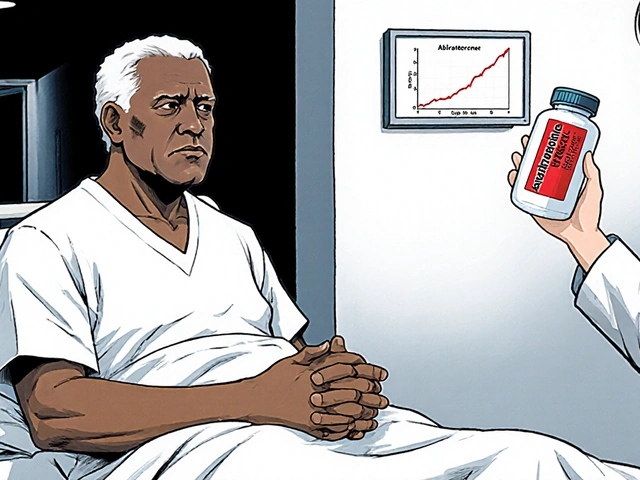ACE Inhibitors: What They Are and How They Help
If you’ve ever been told to take an "ACE inhibitor," you might wonder what that actually means. In simple terms, ACE inhibitors are medicines that relax blood vessels so your heart doesn’t have to work as hard. They’re a go‑to choice for people with high blood pressure, heart failure, or kidney problems caused by diabetes.
These drugs got their name from the enzyme they block – Angiotensin‑Converting Enzyme (ACE). When ACE is blocked, your body makes less of a hormone called angiotensin II. That hormone normally tightens blood vessels and raises pressure, so cutting it down leads to wider vessels and lower pressure.
How ACE Inhibitors Lower Blood Pressure
The process sounds technical, but the result is easy to feel: fewer headaches, less swelling in your ankles, and a calmer heartbeat. By stopping angiotensin II from forming, ACE inhibitors also tell the kidneys to release more salt and water. That extra fluid loss helps further drop blood pressure.
Because they act on two fronts – vessel relaxation and reduced fluid retention – ACE inhibitors often work faster than older pills that only target one pathway. Most people notice a steady improvement within a week, but doctors usually keep the prescription for life to protect the heart over the long run.
Choosing the Right ACE Inhibitor
There are several brands on the market, and they’re all similar in how they work. Common names you’ll see at the pharmacy include lisinopril, enalapril, ramipril, and captopril. The exact dose depends on your age, weight, kidney function, and how high your blood pressure is.
Starting a new ACE inhibitor usually means taking a low dose for the first few days to see how you tolerate it. If you feel dizzy or notice a sudden drop in energy, tell your doctor right away – they may adjust the amount or try a different drug.
One thing to watch out for is a persistent cough. About 5‑10 % of users develop a dry cough because ACE inhibitors increase a substance called bradykinin. If that happens, switching to an ARB (another class of blood pressure medicine) often solves the problem.
Another rare side effect is higher potassium levels, so your doctor might order a blood test after a month of treatment. This check helps catch any issues before they become serious.
When you pair ACE inhibitors with a healthy lifestyle – low‑salt meals, regular walks, and staying hydrated – the benefits add up quickly. Many patients report feeling more energetic within a few weeks, simply because their heart isn’t straining as much.
In short, ACE inhibitors are a reliable way to keep blood pressure in check and protect your heart. Talk to your healthcare provider about which specific pill fits your needs, and don’t hesitate to ask questions if you notice any new symptoms. With the right dose and some simple habits, you can stay on top of your health without hassle.
10 Alternatives to Losartan: A Straightforward Guide to Hypertension Options
Wondering what to do if Losartan isn't the right fit? This clear and honest guide covers ten other common medications used to manage high blood pressure, each with its pros and cons. You'll get simple breakdowns, smart tips, and the real talk you need to discuss options with your doctor. Make your next appointment less confusing by knowing which meds might work differently—and why. From ACE inhibitors to beta blockers, you'll know what's out there.
About
Medications
Latest Posts


Abiraterone: Transforming Prostate Cancer Care for African American Men
By Orion Kingsworth Oct 18, 2025

Monoclonal Antibody Biosimilars: Examples and Clinical Uses
By Orion Kingsworth Jan 31, 2026

Caffeine and Medications: How Your Coffee Could Be Making Your Pills Less Effective
By Orion Kingsworth Dec 11, 2025

